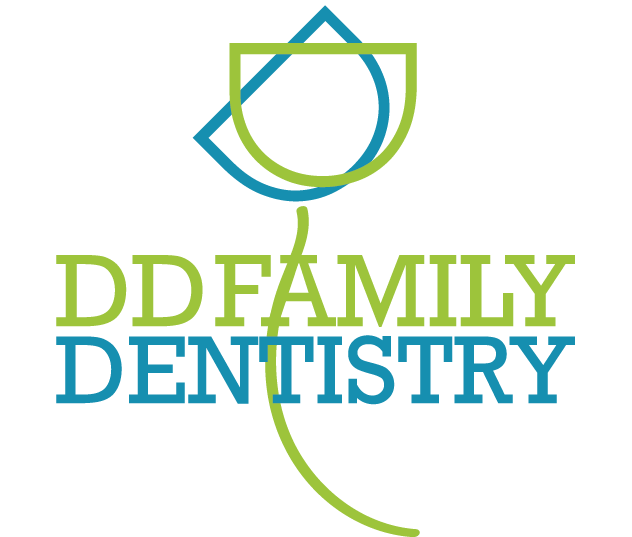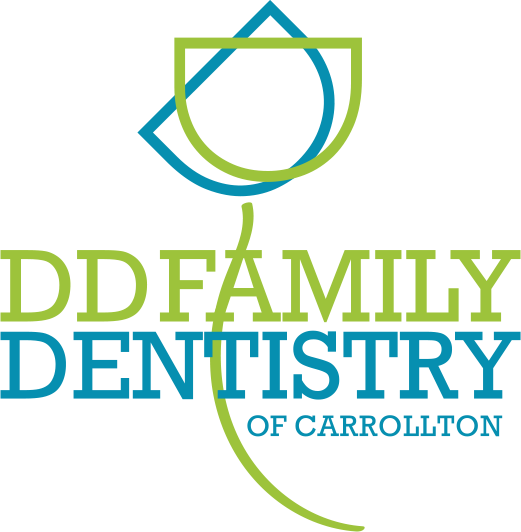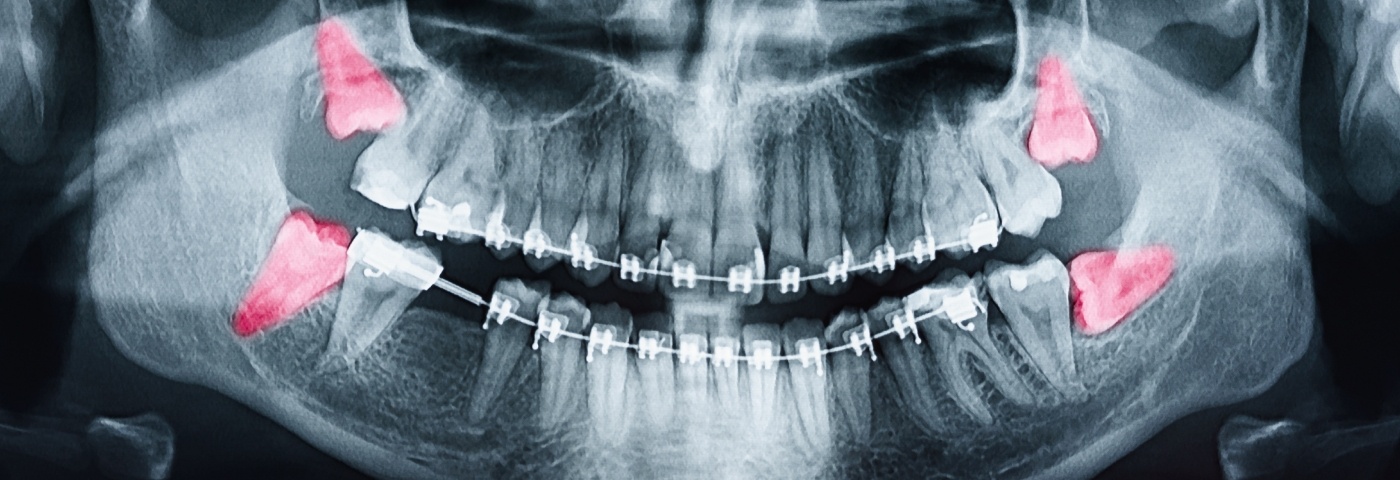Wisdom Tooth Extractions Carrollton
Let Us Give Your Mouth Added Space
Known as the third set of molars, wisdom teeth are the last to arrive, usually emerging in a person’s late teens or early twenties. At this point, most people don’t have enough room in their mouths for these extra teeth. If the wisdom teeth aren’t removed, it could lead to an increased risk of pain, infections, and several other issues. Luckily, our team can prevent complications by closely monitoring the third molars at every checkup. We may determine that wisdom tooth extraction in Carrollton is necessary for the sake of your oral health, which is a procedure that we can perform right here in our office. To learn more about what to expect, call us to schedule a consultation today!
Why Choose DD Family Dentistry of Carrollton for Wisdom Tooth Extractions?
- Multiple Sedation Options Available
- Convenient Appointments for Busy Schedules
- Skilled Periodontist Who Can Ensure Successful Results
What Are Wisdom Teeth?
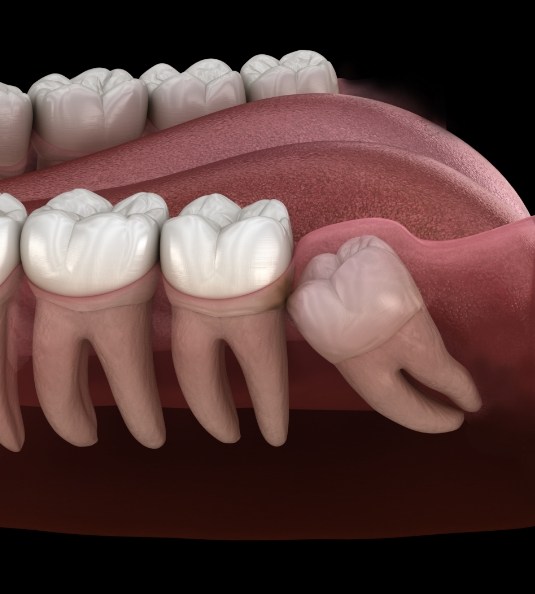
Wisdom teeth were once essential for our early ancestors, as they helped them chew tough meats. However, they’re no longer necessary for our survival thanks to changes in our diet and cooking techniques. Despite that, these third sets of molars continue to make their appearance during the later teenage years or early adulthood.
Unlike the other teeth, wisdom teeth don’t have sufficient room inside the mouth to successfully emerge through the gumline. This often leads to impaction, which can be very uncomfortable. Additionally, the emergence of these pearly whites can lead to an increased risk of potential harm to other nearby teeth.
Why Do Wisdom Teeth Need to Be Removed?
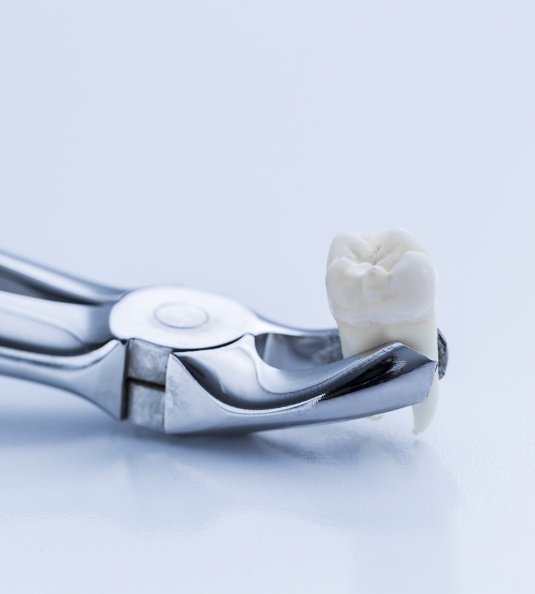
For some people, wisdom teeth can be kept in their mouth without any issues. However, the jawbone doesn’t usually have enough space to accommodate them, leading to impaction. If they’re not extracted, they can lead to problems, such as:
- Crowding, which causes damage to nearby teeth
- Wisdom teeth that push your smile out of alignment
- Possible jawbone damage
- Gum inflammation and pain in the gums
- Difficulty cleaning the hard-to-reach areas of your mouth
What to Expect from the Wisdom Teeth Procedure

First, you’ll visit our office for a consultation. We’ll examine your mouth and determine if a wisdom tooth extraction is the best course of action for your oral health. If your wisdom teeth have already erupted past your gumline, removing them will be a fairly simple process. We can use an elevator to lift them before gripping them with forceps to wiggle them free of their sockets.
On the other hand, a wisdom tooth that is stuck beneath the gumline (impacted) can make the removal process a bit more complex. Depending on the situation, we may refer you to a local specialist for the extraction. They may have to create incisions in your gums to break the tooth into pieces to remove it.
Understanding the Cost of Wisdom Tooth Extractions
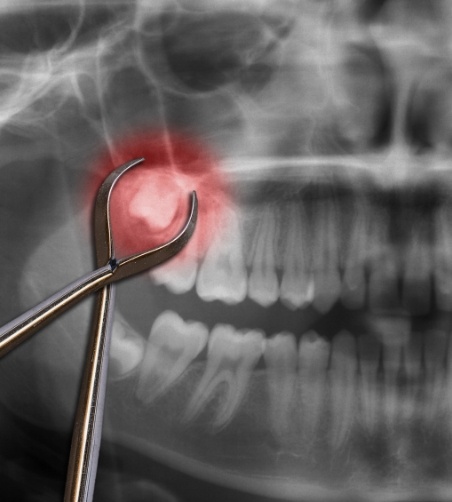
The cost of wisdom tooth extractions can vary depending on a few factors. During your consultation, we can talk to you about specific numbers. We will also help you understand your payment options, such as insurance, financing, and our in-house membership savings plan. Please understand that wisdom tooth removal is an important procedure for most patients, and its price is a fair exchange for the improved oral health that you will enjoy in return.
Factors That Can Impact the Cost of Wisdom Tooth Extractions

The cost of wisdom tooth extractions can be influenced by several factors:
- How many wisdom teeth will be removed? Some patients choose to get all four of their wisdom teeth removed at once, whereas others only want the most troublesome teeth extracted. Rarely, a patient has more than four wisdom teeth.
- Whether or not the wisdom teeth are impacted. If your wisdom teeth have fully erupted from the gumline, we can remove them right here in our Carrollton dental office. However, if they are impacted, we may need to refer you to a specialist who has a pricing structure that is different from our own.
- The use of sedation. We may recommend that you be sedated during your procedure, particularly if you are nervous about it or have a strong gag reflex. Sedation incurs a separate fee from that of the wisdom tooth extraction treatment. The type of sedation used can also impact pricing.
Does Dental Insurance Cover Wisdom Tooth Extractions?

In many cases, dental insurance does cover wisdom tooth removal. Depending on the details of your case, your procedure may be classified as minor or major, so anywhere from 50% to 80% of its cost might be covered, up to the amount of your policy’s annual maximum. Our practice is in-network with several major dental plans; we will do all we can to help you use your benefits in a manner that keeps your out-of-pocket costs to a minimum.
Other Options for Making Wisdom Tooth Extractions Affordable
Beyond insurance, there are a few provisions that might make it easier for you to afford your wisdom tooth procedure:
- Most patients are eligible for low-interest financing through CareCredit, a third-party company that specializes in helping patients afford dental and medical services.
- Our in-house membership plan. In exchange for a reasonable fee, this exclusive savings plan can provide discounts on virtually all the treatments available in our practice.
Wisdom Tooth Extraction FAQs
Do wisdom teeth have to be removed?
Not all wisdom teeth have to be extracted. In fact, it’s often recommended as a preventive measure because of the risks they pose to your oral health. An estimated 90% of Americans with third molars end up having them removed due to pain as a result of them growing in and an increased risk of developing oral health and orthodontic problems down the road.
Before recommending your third molars be removed, our team will examine X-rays to make sure the risks of the procedure don’t outweigh the benefits to your oral health. We’ll also walk you through our treatment plan and make sure that any concerns or questions you may have get answered so you feel comfortable and confident moving forward with the procedure.
How long does it take to remove wisdom teeth?
The length of your treatment will depend on several factors, like how many wisdom teeth you’re having removed and whether they’re impacted or not. However, it typically takes between 15 and 20 minutes to extract each one. That means that if you have all four of your wisdom teeth, the procedure can take about 90 minutes on average.
How can I prepare for my wisdom tooth extraction?
Our team will provide you with pre-op instructions before your extraction, so you can properly prepare and minimize any risk of post-operative complications. Typically, we recommend following these general guidelines:
- Be prepared to have a trusted friend or family member pick you up and drop you off at your appointment.
- Pick up any prescriptions before your procedure, if possible, so you have them at home.
- Stock your kitchen with soft foods that are safe and easy to eat.
- Please refrain from smoking, drinking, or using tobacco products at least 12 hours before your procedure.
- Wear comfortable clothing.
If you have any questions or concerns before your treatment, don’t hesitate to call our office.
What’s the best age to have wisdom teeth removed?
If your dentist has recommended you have your wisdom teeth removed, the sooner, the better. This is because as they continue to grow, more tissue and nerves may develop, which further complicates the procedure.
Does everyone have wisdom teeth?
Some people actually don’t have any wisdom teeth to begin with. It’s not entirely clear why this is, but genetics is likely a factor; you may not have any wisdom teeth if one of your parents was missing them as well.
Of course, it’s important to confirm whether or not you have wisdom teeth as quickly as possible; if they are present, you need to be able to start making plans in case they need to be removed. A trained dentist can check for wisdom teeth by taking X-rays of your jaw.
How do you make wisdom teeth pain go away?
There is only one lasting solution for wisdom teeth pain: having the teeth in question extracted. Of course, you’ll need to be able to deal with the discomfort while you’re waiting for your procedure. Here are a few pain management tips:
- Hold a cold compress over the outside of your cheek where the pain is present. You should only use a cold compress for 15-minute intervals. Make sure that it’s wrapped in a towel first.
- Pick up some ibuprofen or another kind of pain reliever at the store. Follow the provided directions carefully. Aspirin is generally not recommended; it may make the discomfort worse if it comes in contact with the affected tissues.
- Add one or two teaspoons of salt to eight ounces of water and let it dissolve. Then rinse your mouth with the resulting solution. Not only can this help relieve pain, but it can also get rid of food debris that’s trapped in your mouth and fight the accumulation of bacteria. (Be sure to spit out the saltwater rinse once you’re done with it; do not swallow it.)
How soon can I eat after wisdom teeth removal?
You can typically have your first meal after a wisdom tooth extraction about an hour or two after the procedure. That said, it’s important to follow any instructions you’re given regarding when it’s okay to eat. You should consume only liquids during the first 24 hours of recovery. After that, you can re-add soft foods to your diet. In many cases, you’ll be able to return to eating anything you want after about a week.
When can I use a straw after wisdom teeth removal?
You’ll be told not to drink through a straw immediately after wisdom teeth extraction. This is because doing so may disturb the blood clot that’s protecting the socket where the tooth used to be. So, when will it be okay for you to use a straw again? For many people, it can take two or three days. However, factors such as how quickly your body heals, and your age will need to be taken into account. Our team can give you more specific advice on what you should or shouldn’t do after wisdom tooth extraction once we have a better idea of what your needs are.
